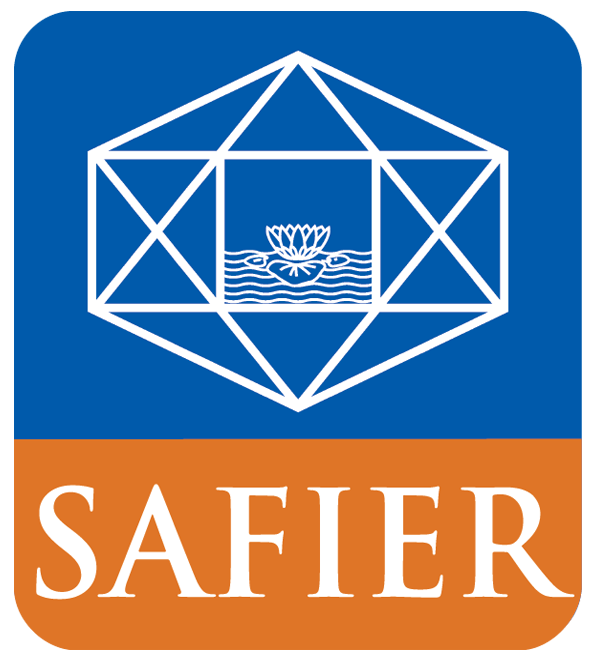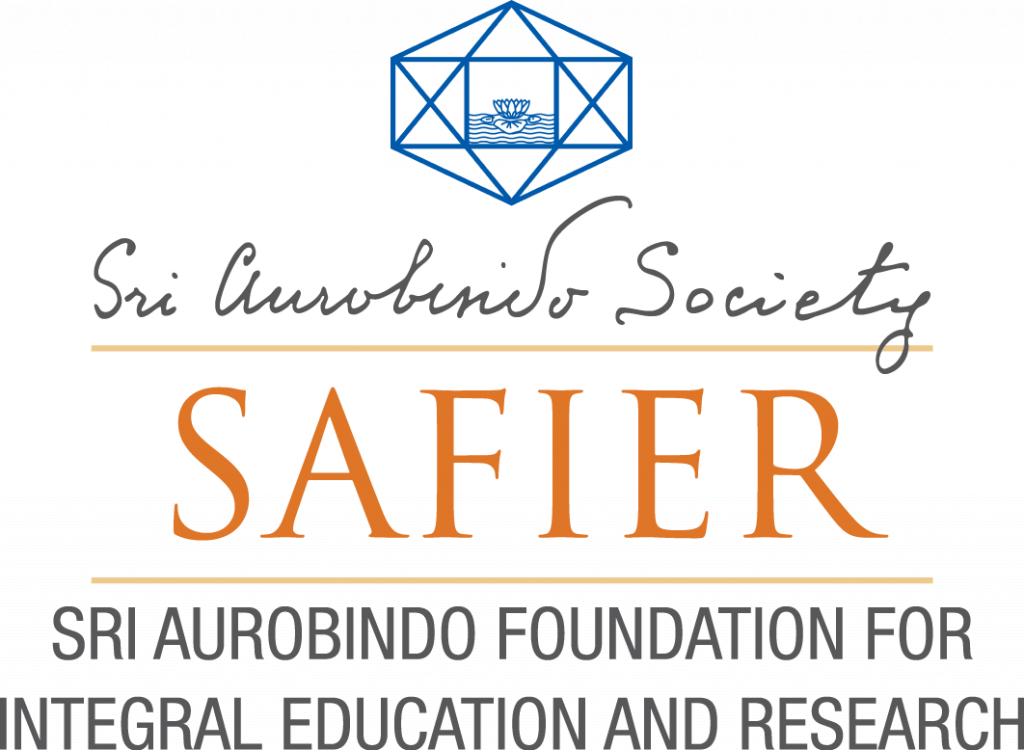Date: May–October, 2015
Place: Auro Navakriti Pre-School, New Delhi
Workshop—How to Play and Assist Child Development
 On May 16, 2015, Auro Navakriti held a workshop on “How to play and assist early child development”. The aim of the workshop was to define how to unshackle children from the ‘anxious gaze’ of parents and the resultant constant anxiety over food and sleep thereby diverting their focus towards the great adventure that is life.
On May 16, 2015, Auro Navakriti held a workshop on “How to play and assist early child development”. The aim of the workshop was to define how to unshackle children from the ‘anxious gaze’ of parents and the resultant constant anxiety over food and sleep thereby diverting their focus towards the great adventure that is life.
In this exercise, corners were set up to introduce the concept of free play and the potential they had for encouraging physical, emotional and cognitive development. Indoor as well as outdoor corners for the parents were arranged to demonstrate how to play with children at home. A glimpse of the workshop proceedings is available on Navakriti’s website
Various aspects of child development through a range of play and language development skills were presented at the workshop. The discussion was deepened by The Mother’s writings on mental, physical, vital and psychic education.
Workshop—Our Relationship With the Child Around Food and Sleep
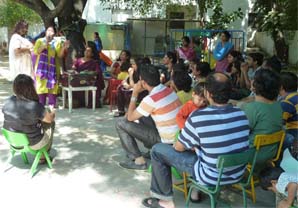 This workshop held on September 19, 2015, was to address parents’ concern for their children not eating enough at home or in school.
This workshop held on September 19, 2015, was to address parents’ concern for their children not eating enough at home or in school.
It began with making the parents aware of their concerns surrounding food, sleep and rest for the child and themselves. From then on it proceeded to keep the workshop in the enquiry mode with observations coming in from parents. Various ways of relaxing among the children were discussed. Some children, it was observed, rested while playing, while others did so by listening to stories or music.
The question that came up for the parents during this session was, “Do we rest when we play with the child?”
A video of Lotus children eating in class revealed that children were hardly aware of ‘eating per se’; usually, they chatted with each other, looking for toys, inventing games, feeding each other, hugging and eating by the way. Next, we went to the slideshow and found some guidelines—drawn from The Mother’s writings and a paediatrician’s suggestions.
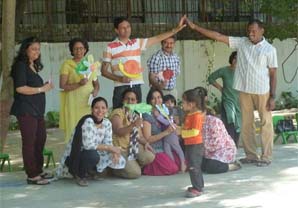 There were discussions on various aspects of a child’s growth such as weight gain, diet, a balanced diet plan for a week rather than a day and reasons behind a child not eating; besides some suggestions regarding handling issues related to food were also made. The Mother’s writings on food were presented along with paediatricians’ recommendations to restore balance and beauty and add a fresh perspective to the whole question.
There were discussions on various aspects of a child’s growth such as weight gain, diet, a balanced diet plan for a week rather than a day and reasons behind a child not eating; besides some suggestions regarding handling issues related to food were also made. The Mother’s writings on food were presented along with paediatricians’ recommendations to restore balance and beauty and add a fresh perspective to the whole question.
It was also noted that children eat well when they are active—running and playing unhindered happily expending all their energy. They also loved making their own food. It was found that children eat sandwiches endlessly when they make them and cannot have enough of watermelon when they scoop them out themselves!
Somewhere in all this, the need to surrender the difficulty with food came up raising a deeper, contemplative question. Parents were urged to offer this difficulty to the universe and not pay attention to it. Instead the focus could be shifted to stories around food parents tell their children that would establish joyous bonds between them and in that unbridled happiness, magic may happen. To be in play land, full of stories, and have the door of fantasy open around routine activities that are difficult were recommended. Senior teachers shared some stories which were enacted using different puppets and props trying to inculcate values through those stories.
Workshop on How to Rest and Tell Stories
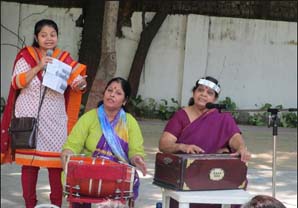 Continuing with the theme of the previous workshop, on October 10, 2015, a workshop on storytelling—‘How to Rest and Tell Stories’ was held. The storytelling workshop focused on building courage, aspiration and imagination in ourselves and opening to the children a new worldview filled with adventure, goodwill and harmony, constantly learning from all the experiences and moving forward to manifest the beauty within, without.
Continuing with the theme of the previous workshop, on October 10, 2015, a workshop on storytelling—‘How to Rest and Tell Stories’ was held. The storytelling workshop focused on building courage, aspiration and imagination in ourselves and opening to the children a new worldview filled with adventure, goodwill and harmony, constantly learning from all the experiences and moving forward to manifest the beauty within, without.
The Mother’s Mirror—A Mom and Me Programme
In the sheltered simplicity of the first days after a baby is born, one sees again the magical closed circle, the miraculous sense of two people existing only for each other.
– Anne Morrow Lindbergh
On July 22, 2015, a new programme was launched at Navakriti. This ongoing programme is for 1 to 2 years old and held thrice a week for 2 hours (9:30-11:30 a.m.). Its aim is to free the mother from the loneliness and monotony of minding her child to consciously assisting the child’s growth by becoming calm, resourceful and emotionally confident of making the child independent. Currently, five children have joined this programme.
Programme note
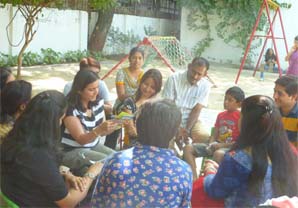 A joyous awakening through senses and emotions into an adventurous journey is the avowed aim of all enlightened and conscious early childhood education.
A joyous awakening through senses and emotions into an adventurous journey is the avowed aim of all enlightened and conscious early childhood education.
The child is a soul in evolution here on earth to discover a unique and sacred purpose, and the role of parents and teachers in his/her life is to facilitate this discovery by developing calm within oneself, and cultivating understanding and respect for the child.
The relationship between the mother and child starts from the day the seed of new being is implanted in the mother’s womb. The mother and child communicate with each other from that very first hour. The child in the womb expresses his/her happiness and the uneasiness through the mother imbibing the mother’s consciousness, feelings, thoughts, recognizing joy, sadness, stress—all emotions—and express their feelings through movements like kicking.
Once the child is born, the mother is the first person the child starts recognizing from the touch to the voice to the body odour (smell), and so on. The bonding between the mother and child is so strong that the child mirrors the feeling and expressions of the mother. If the mother is angry with the child and gets upset easily, the child is also likely to be short-tempered and aggressive with others. Thus, the child grows in the psychological matrix of the mother’s consciousness.
‘The Mother’s Mirror–A Mom and Me’ programme is centred on nature working on awakening joy and enthusiasm in both mother and child on an experiential basis.
